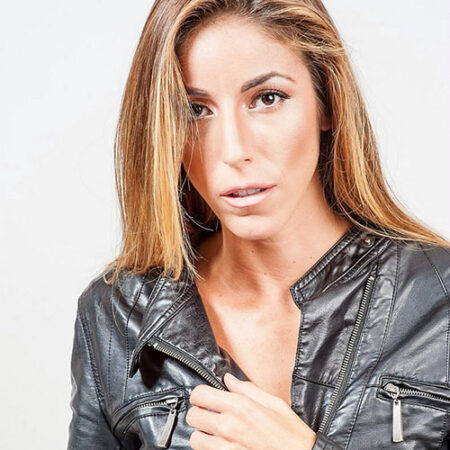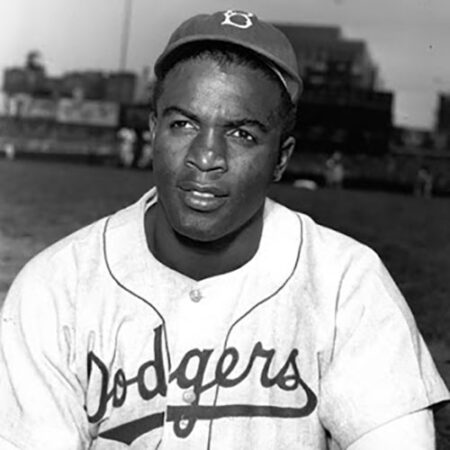Share this
 The Annenberg Institute of Sports, Media and Society at the University of Southern California has put on a few ‘Sports & Social Change Speaker Series’ which I have delightfully attended. Last year I attended the “Sports In Transition: Ownership, Athletes, and the Brave New Media World” series where the panel was packed with top brass professionals such as Mike James (Sports Editor of LA Times), Paula Madison (Owner of LA Sparks), Ed Goren (Vice Chairman of Fox Sports), Molly Jolly (Sr. VP of Los Angeles Angels of Anaheim), and Robert Sarver (Owner of the Phoenix Suns). The enthusiasm that event gave me fueled my want to attend this next one which was part of the USC Conference on Sports: The Olympics. This particular Speaker Series was titled The State of the Games: A Discussion with IOC President Jacques Rogge.
The Annenberg Institute of Sports, Media and Society at the University of Southern California has put on a few ‘Sports & Social Change Speaker Series’ which I have delightfully attended. Last year I attended the “Sports In Transition: Ownership, Athletes, and the Brave New Media World” series where the panel was packed with top brass professionals such as Mike James (Sports Editor of LA Times), Paula Madison (Owner of LA Sparks), Ed Goren (Vice Chairman of Fox Sports), Molly Jolly (Sr. VP of Los Angeles Angels of Anaheim), and Robert Sarver (Owner of the Phoenix Suns). The enthusiasm that event gave me fueled my want to attend this next one which was part of the USC Conference on Sports: The Olympics. This particular Speaker Series was titled The State of the Games: A Discussion with IOC President Jacques Rogge.
Now I knew this was an important event not only because my professor,Daniel Durbin, had an excited light in his eyes when he told me how enticing this would be but because as I walked into the Town & Gown at USC my back was brushed by quite a few men that I can only describe as bodyguards that were fully protected and were making sure that their cargo was safe. As I look behind their stone cold faces I see the International Olympic Committee President, Jacques Rogge. I’m not sure if many people understand how big of a deal this is to have the IOC President visit but judging by the press, the guards, and the many “suits” in the room I knew this was the event not to miss.
After a welcome and introduction from USC’s Annenberg Dean Ernest Wilson and Director of the Annenberg Institute of Sports, Media, and Society Dan Durbin they passed the torch to the Alan Abrahamson of USC Annenberg School of Journalism. Before introducing the President, Alan gave a very heartfelt and warm welcome to Olympic gold medalist Diver Sammy Lee. Abrahamson told us the back story on Sammy and that he dealt with some of the worst types of discrimination in his day. Sammy dreamed of becoming a diver at the young age of twelve. But in these days, 1932, Asian American’s along with the Latino’s and African American’s were only allowed to go to the public pool on Wednesday’s. This particular pool in Fresno where Sammy grew up called it “International Day” and when this day was over they would drain the pool and refill with new “clean” water. Because Sammy needed to practice more than once a week his coach dug a hole in his backyard and filled it with sand so Sammy could jump in it and practice. Imagine that? It would seem that obstacles were something that Sammy never saw. As a student at the USC school of medicine, Sammy received his M.D. A year later he would be competing in the 1948 Olympic Games winning a Gold medal in the 10m Platform making him the first Asian American to win a Gold in the United States. Those same games he also took home a Bronze in the 3m Springboard. In the next Olympic Games in 1952 Sammy won once again the Gold medal in 10m platform breaking another record making him the first man to win back to back gold medals in Olympic platform diving. He is in the U.S. Olympic Hall of Fame but he also stands for more than just that title. His story is arduous and painful to hear but he didn’t quit. He went on and followed his dream. As Alan finished this story about Sammy my arms tingled with admiration for this man. The crowd broke out in a standing ovation and we applauded Sammy who sat in the front row.
Once the room was silenced we were then introduced to the President of the International Olympic Committee, Jacques Rogge. Abrahamson started out with questions about cities that wanted to bid on the Olympics coming to their town and surprisingly Rogge was very inviting. When Abrahamson asked him if the new trend of countries like Russia, Brazil, and Korea is on the horizon. Rogge took no delay to say that he doesn’t think its a trend and it is “not based on a new horizon.” He said it’s based on making the athletes happy. Then he hinted that he would hope that Africa would bid and that he would welcome it. At this point Abrahamson shoots some humor over to Rogge’s way saying, “How will you know if the U.S. is right for the Olympics?” and Rogge cleverly answers, “When I open up the envelope.” This dry humor and quips were a non stop between these two. Let’s just say that I wouldn’t want to play poker with Abrahamson or Rogge.
 Rogge touched on the “doping” situation that is being monitored in the Olympic games. He says, “cheating is human nature and we have to accept that”. He says that the doping situation is very serious and dangerous for the athlete and that they must monitor this behavior. For reasons being that sports is based on a hierarchy and ranking and the problem with doping is it is also an issue of recruitment. He said, “We must fight against it.” Along with that issue Rogge also touched on the anti-gambling initiative. He stated that they have calculated how much money has been spent on gambling on the games and it is in the upwards of 70 billion dollars. (who says the U.S. let alone the world is in a recession?). Rogge also brought up the issues of online betting and in a back and forth banter with Abrahamson he said, “You remember the Black Sox?” *silence* then Abrahamson says something back to Rogge that is unintelligible to my ears but judging by his smile it must be something funny inviting Rogge to laugh but he doesn’t. Complete dead pan. The audience chuckles and like a pro Abrahamson moves on to the next topic.
Rogge touched on the “doping” situation that is being monitored in the Olympic games. He says, “cheating is human nature and we have to accept that”. He says that the doping situation is very serious and dangerous for the athlete and that they must monitor this behavior. For reasons being that sports is based on a hierarchy and ranking and the problem with doping is it is also an issue of recruitment. He said, “We must fight against it.” Along with that issue Rogge also touched on the anti-gambling initiative. He stated that they have calculated how much money has been spent on gambling on the games and it is in the upwards of 70 billion dollars. (who says the U.S. let alone the world is in a recession?). Rogge also brought up the issues of online betting and in a back and forth banter with Abrahamson he said, “You remember the Black Sox?” *silence* then Abrahamson says something back to Rogge that is unintelligible to my ears but judging by his smile it must be something funny inviting Rogge to laugh but he doesn’t. Complete dead pan. The audience chuckles and like a pro Abrahamson moves on to the next topic.
The subject now at hand is the Youth Olympics. Rogge says that what they have devised to do is give the TV rights for free. they make no profit but the exposure of the competitions is what drives the audience. With more media it enhances the enthusiasm of the athletes and with the media like Twitter and Facebook it should bring quit the stir to our media resources.
Abrahamson tells us that Rogge has been in office since 2001 and what is his most rewarding experience. Rogge takes a beat and then gives the best answer that I had to furiously write down. He says to see sports at a grass root level is amazing. He tells us that Olympics bring underdeveloped along with developed countries together. He says “When you see what sports do in a refugee camp and what it does for the people, [you can’t get better than that].” The audience and myself enjoyed this comment judging by the smiles on our faces. To have a person with such high authority bring it back to the “grass root” level was very humbling.
Lastly Abrahamson asked Rogge if he had one piece of advice for his successor what would it be. And you know what that clever man said? Rogge without hesitation says, “Learn to listen, and shut up.” The crowd goes wild and we clap to his honest answer.
Next up on the agenda is Chief Executive Officer of the U.S. Olympic Committee, Scott Blackmun. When asked about the upcoming events in London and the U.S., Blackmun encouraged us that London is ready for these games. He says the U.S. does not have a sports ministry like other countries such as China and Russia and that these particular countries make sport a national priority. He goes on to tell us that the U.S. involvement in the Olympic Games is all privately funded.
Abrahamson had to ask about what is important to Blackmun and nudged the idea, is it all about medal count? Of course Blackmun didn’t say no, but of course the U.S. wants to win the medal count and China is nipping at our heels so it is a competitive race to that final number. To add a little more spice Abrahamson says, “Why aren’t we [U.S] good at Team Handball?” After a brief laugh Blackmun said that Europe grew up on handball and we just can’t catch up. After suggesting the U.S. throw more money into that sports training, Abrahamson changed gears a little bit and talked about our funding here in the U.S. The stat he brought up was astonishing. He said that Ohio State’s athletic program budget is about 126 million dollars. He then asked Blackmun, “What is your budget?” and Blackmun answered, “About 175 million.” I was shocked. The U.S. which is a country not a state or even a university for that matter only raises about 50 million more than Ohio state? Wow. Blackmun did mention that the financial gifts keep going up each year. They are currently on a 35% increase from the year prior. He said their largest gift to date is a donation they received last year that was a whopping 10 million dollars.
In an effort to make the public aware of the USOC, Blackmun said that the committee wants to increase their engagement with their audience. He said he wants people to care about the Olympic movement. Blackmun says they are going to a lot more conferences and trying to raise awareness. This as he mentions keeps him on the road for many days out of the year. 135 days to be exact according to his books from last year.
At this time it is ready for audience questions. Now this particular time is one of my favorites because people ask four types of questions. One being the ‘thats a really good question’ question. Two being the most uninteresting question that could be asked by man. Three being the question that really isn’t a question and actually causes the panel to look confused only to turn it into another uninteresting question. Then finally the fourth question that is usually asked and it’s the one that makes you uncomfortable and is usually asked for a sound bite. Lucky for me I was able to encounter all four types of questions.
There was one that was confusing. Something about women in sports. Not sure what this woman was searching for but the end result was Rogge cutting in and saying that gender participation is increasing.
The next was an ok question but was borderline confusing. Something about marketing with the Olympics and such. I’ll be honest I checked out on this one. I think I was trying to figure out what I wanted for dinner.
This next one was a little juicy. It was directed at Blackmun and I think I could see him actually get a little red because this question was slightly attacking the USOC’s character. The women asked why there is no education and culture in the youth Olympics. And why was the USOC “skimming” the profit from these sports. Blackmun took a second and then with grace answered the questions. He said that when they did implement programs on culture they actually didn’t see any ROI back from it. He also said that the USOC “Feels like our obligation is to give athletes the best opportunity to perform in the Olympics.” He said the amount of money they get is put towards supporting the athletes so there wasn’t any “skimming” happening like she mentioned. He said the USOC’s two goals are: Sustain competitive excellence and inspire Americans.
Another question that was asked was about the open process for cities wanting to bid on hosting the Olympics. Now this was a good question but also already answered. The new answer was that the bidding would not be as formal as before. It would be an open process and it would really depend on the leadership of those cities.
Oh and then the agony. One women gets on the mic and after going through a long explanation she says, “What are the ways the U.S. could get the proper facts when an athlete is hurt overseas.” She was referring to the death in Vancouver years ago. I saw it as a rude comment because once again you are testing a man’s manhood in front of all these people. I even wrote in my notes, “Icy”. Blackmun once again answered gracefully stating that the USOC is invested in the safety of the sports. He left it like that. Short simple but not left open for more discussion with her.
When an audience member asked if baseball would be added to the Olympics, Rogge jumped in and said it is one of 9 sports to be added.
Lastly Blackmun talked about how when the athletes are on the Olympic team they are sent to a mini bootcamp like media session. The question asked was what does the committee feel about social media. Blackmun said that he can’t speak for during the games because there are specific rules but what he could say was that prior to the games and such it is important for those athletes to get a following on Facebook or Twitter but that they have to be careful what they say because at this point they are now role models. He says they even get their agents and managers involved because those authorities need to know the magnitude of those actions as well.
When all was said and done Abrahamson thanked the packed house for coming and that was the end to another encouraging Speaker Series. I hope that USC keeps these going because being a student at USC means exclusivity to certain events and the opportunity to meet people that are known to others as ‘Untouchable’. These events to me are motivators to be a better student, a better networker, a better researcher, a better member of society, and most of all a better enthusiast. This is why I go to USC. This type of knowledge and camaraderie amongst other Trojan family members is absolutely priceless.








